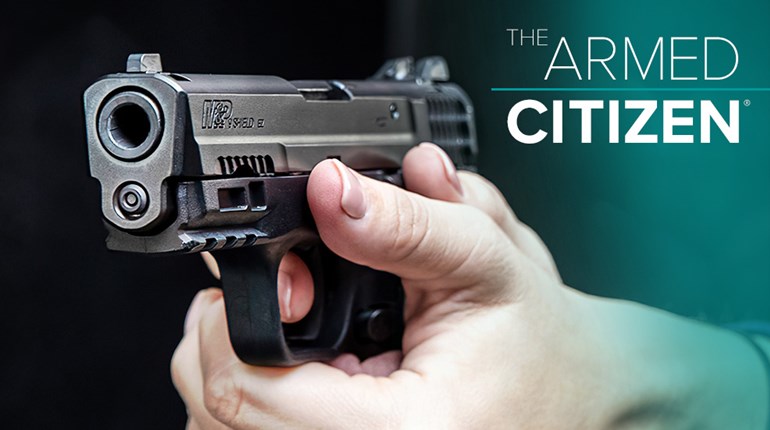
Question: In the state of California, what do you get if you successfully defend your family from a home invasion using your legally owned and carried firearm?
Answer: You get your Second Amendment rights “suspended” until such time as you are able to convince the government that you deserve to be given them back.
This isn’t a joke. Rather, it’s exactly what happened in November to a Californian named Vince Ricci. After Ricci repelled an attack on his Los Angeles home by two masked, armed men, authorities took away his ability to carry concealed.
“After successfully defending my home and my family and my five-month-old child,” Ricci told the NRA, “California has now decided to suspend my Second Amendment.”
Well, of course.
If there is a better argument for the universal adoption of constitutional carry than this, I cannot think of it, for if California were a constitutional-carry state, this simply could not have happened. No permit means no power of revocation, and no power of revocation means no scope for the authorities to meddle with the citizenry’s unalienable individual rights. The immediate error in California lies, of course, with whomever made this decision. But the broader error lies in the system that empowered that decision. If Ricci lived in Florida or Nebraska or Arizona or Ohio—or any one of the 27 constitutional carry states in the U.S.—he could not have been targeted as he has been.
Contrary to the falsehoods one routinely hears in the press, constitutional-carry systems do not permit “literally everyone”—including criminals, children, tourists and the mentally ill—to carry firearms outside of their homes. But they do ensure that, where exemptions exist, they rely upon hard-and-fast categories, rather than on the personal opinions of the government.
In constitutional-carry states, one can be deprived of one’s right to bear arms if one moves from one category to another; for example, if one moves from being a law-abiding citizen to having been convicted of a felony by a court. But one cannot have one’s rights stripped away at the whims of government agents. Clearly, Vince Ricci did not move from one category to another by virtue of his being targeted by violent criminals. That California chose to use the incident as an excuse to punish him nevertheless is nothing short of extraordinary.
Extraordinary—but not surprising. Indeed, Ricci’s story adds yet another data point to the already watertight case for constitutional carry as a solution to the arrogance of government officials. During the COVID-19 pandemic, many states refused to process concealed-carry-permit applications for months, leaving citizens waiting for permission to exercise their rights. In New York, officials have been trying to make the process of issuing concealed-carry permits contingent upon a review of the petitioner’s speech. Historically, disfavored minorities have often been denied equal access to their liberties as a result of persistent prejudice on the part of the authorities. Constitutional carry makes all of that impossible. It would make the persecution of Vince Ricci impossible, too.
California has refused to provide a specific reason for the suspension of Ricci’s permit, preferring to explain vaguely that permit-holders must provide the “proper notifications” and “use of [a] properly documented weapon.” Morally, though, this is precisely the wrong way around. For millennia, Western nations have hewed to a principle that was first laid out by the Emperor Justinian in the Corpus Juris Civilis: “That which someone does for the safety of his body, let it be regarded as having been done legally.” California has turned this on its head, electing instead to deprive a law-abiding citizen of his rights because he used those rights to save his life. This inverts the proper relationship between the citizen and the state, transmutes the rights of the individual into mere privileges and should not stand in a free nation.
With constitutional carry, it wouldn’t.


































